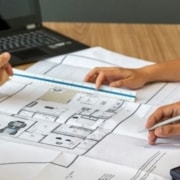Buying A Property in Italy. Insider Tips from Our Clients
In a recent survey, we asked clients what top tips they would offer to others buying a property in Italy. What would they recommend in order to ensure that Italian property purchases run smoothly? Here is a selection of replies, which we hope might be helpful if you are planning to buy real estate in Italy.
“Notaries and solicitors are not the same. The former works for the Italian State. The latter works for you …
Once the vendor has accepted your offer, it’s crucial to have the right people on your side.
We thought that because under Italian law you have to use a public notary, a ‘notaio’, we were protected from a legal point of view. However, we learnt that an Italian notary is not at all the same as having a solicitor. While a notary handles the conveyancing, they can’t give you any legal advice. In fact, Notaries are government employees. They are responsible for collecting all the relevant taxes you pay at completion.
In Italy, the vendor and buyer often share a ‘notaio’ but I’d advise you to appoint your own. Despite what anyone tells you, I’d recommend you consult a solicitor to advise you on matters such as price negotiations, checks and searches on the property, inheritance and how to structure your purchase and tax issues.
Choose the solicitor yourself, not someone the vendor or estate agent recommends. And, make sure the solicitor speaks your language and has experience of dealing with Italian property purchases and all the associated legal, estate planning and tax aspects”.
Get Your FREE Guide to Planning Your Inheritance in Italy
Our PDF guide explains the ins and outs of preparing your inheritance under Italian law
Download now“It’s not just about buying a property in Italy. Don’t ignore inheritance planning!
Under Italian law you have to leave a portion of your estate to your children (or your parents if you have no children), you can’t just leave all your property to whoever you want, whether that is your spouse or the local dog rescue centre.
Of course, there are ways around this, but they have legal and tax implications so it is important to seek professional advice if for any reason you don’t want to leave your Italian home to what are known as, “forced heirs”.
There are several ways to structure property transactions in Italy, which is great. However, you can’t change the ownership structure later on, so it’s important to consider the options before you buy. There are also inheritance tax implications so, again, getting professional advice before you sign anything is crucial”.
“You have to be smart with your cash.
Firstly, make sure you get your offer right. It’s surprising how many people who have an accurate idea of prices where they live will make an offer in Italy based on what they feel is right rather than market knowledge. It’s easy to research prices across Italy online on various property portals and agency websites. Your estate agent can advise you too. They also have a good idea of the price the vendor would be willing to accept.
We wanted complete peace of mind and preferred to have someone working purely on our behalf, so we asked De Tullio Law Firm to help us and they did an excellent job. They advised us all the way through our Italian real estate buying experience. They saved us a great deal of money negotiating a price for the property and sound legal advice. In addition, they helped put us in touch with foreign exchange specialists and helped us look in to taking out an Italian mortgage. We decided not to go down that route in the end but, it would have been an option”.
“Make sure your estate agent is qualified.
Italy has a well-regulated estate agency system. Buying a property in Italy is therefore pretty safe. Plus, it is easy to make sure your agent is one of the good guys. Check that your estate agent has professional insurance and is registered with their local chamber of commerce. Still, it’s a huge thing to sign legal documents if like us, your Italian is not great.
From personal experience, it’s a good idea to have a lawyer look over paperwork before you sign anything. Take care who you give your money to. Never give it directly to the seller – only to the notaio or to your estate agent so long as they are insured to take such payments. And never be tempted to pay ‘under the table’ to avoid taxes on the purchase by declaring a lower sale price. Even if you get away with it at the time, you will have to pay higher capital gains taxes when you come to sell as the difference between the price you paid (or declared you’d paid) and the price you sell at will be higher”.
“Although surveys are not common in Italy, that doesn’t mean you don’t have to have one.
We’re glad we had a survey done. When we were buying a property in Italy, our surveyor found quite a few structural issues and planning permission issues. Things that we couldn’t see just from viewing the property. We were able to use the issues to negotiate on the price of our house.
Make sure you choose an independent surveyor. Someone who understands the peculiarities of Italian buildings. Get a complete survey covering structural, zoning, building permits, termites, lead paint, asbestos, natural and industrial risks, gas/electrical/water installations, septic tanks and energy efficiency ratings. Because we were planning to renovate our property, we also asked a builder to look over the property”.
Get Your FREE Guide to Buying Property in Italy
Our PDF guide covers every aspect of the buying process so you're ready to purchase with confidence
Download now“Renovations can be a great opportunity, but they can turn in to a money pit.
If you are looking for a renovation project in Italy, it is important to understand the likely costs and timescales involved, to avoid them spiralling out of control. Get at least a couple of quotes from builders before you sign for the property, and make a realistic plan for how you will proceed – will you use an architect and, or geometra, a project manager, Italian builders and artisans, or do the work yourself?
Planning permission is also key; get your lawyer to insert a condition into the preliminary sales contract (compromesso) stating that the purchase is subject to planning consents. We have renovated a couple of buildings in Italy, but wouldn’t have undertaken the projects without seeking legal advice beforehand”.
“Choose a reputable developer if you decide to buy an off-plan property in Italy.
Looks great on paper? A chance to design certain elements of your home? That’s what we thought but, buying an off-plan property in Italy is not for the faint-hearted. There have been so many stories of things going very wrong with off-plan real estate.
If you are thinking of buying off-plan, having your own lawyer is a must. Italian law is very complex and Italian legalese is a completely different language. It is crucial to establish that the developer is reputable before you sign any papers or hand over any money – do the developers have a bank guarantee for example? Bear in mind that in Italy developers won’t get funding from a bank until a certain amount of properties have been signed up, so check how far the development has progressed (has planning permission been approved or building work started?).
Never sign anything until you have taken legal advice and never ever hand over all the money at the start of the process, even if a developer is pressuring you. You should only make payments in stages. A final payment is only due once the property is complete.”
“On top of the asking price, you need to budget for additional costs.
This is really important to think about. Notary and estate agent fees can easily add up to 15% of the price of your property. Notary fees include various Italian State taxes like stamp duty as well as their actual fees, set on a sliding scale according to the value of the real estate. Estate agency fees are at the agency’s discretion. If you have a mortgage, don’t forget to account for mortgage fees as well. In addition, think about costs such as solicitor’s fees and surveys. Also think long term about property taxes, maintenance and running costs”.
“Do your homework before buying a property in Italy …
Read specialist magazines, consult websites – take care they are reputable though. Online advice can be a little misleading or even incorrect. Go to Italian property exhibitions and talk to experts there. Make sure you understand what you are taking on – not just the buying process and costs involved, but everything else. How will you get to your property? What are the running costs, including property taxes, utilities bills and service charges if you are buying an apartment?
Italy is a great place in which to buy a property – as long as you take care with your research beforehand and use reputable and registered professionals to help you”.
Finally …
If you are thinking of or in the process of buying a property in Italy and have a question, please get in touch for a free consultation.
You may also be interested in How to get a mortgage in Italy
Get All Our FREE Guides for Foreigners Planning to Buy, Sell or Live in Italy
Our PDF guides give you all the knowledge you need to move your Italian dream forward with confidence
Download now









